
10 Foods High In Minerals That May Support Our Wellbeing
Regularly consuming foods high in minerals is very important in supporting our wellbeing. This is because we use minerals such as magnesium and zinc every day as part of core body functions.
Magnesium has a role in supporting healthy energy production within the body while zinc supports core cellular processes and manages oxidative stress as an antioxidant. Both of these are essential in maintaining the optimal functioning of our bodies.
Phosphorus is another really important mineral in the body which we could not survive without. Healthy intakes of phosphorus support bone health and also energy production within the body.
If you exercise regularly you may find that you require more minerals in comparison to those who are more inactive. This is because our bodies are using a spectrum of minerals constantly to support important cellular processes.
We also lose electrolytic minerals through our sweat and so ensuring we are well supported with minerals or replenished is vital when exercising regularly. This may be one important reason why you are considering improving or supporting your dietary intake of minerals.
10 top foods high in minerals will be listed here to help you to increase your mineral intake and possibly help to support your wellbeing.
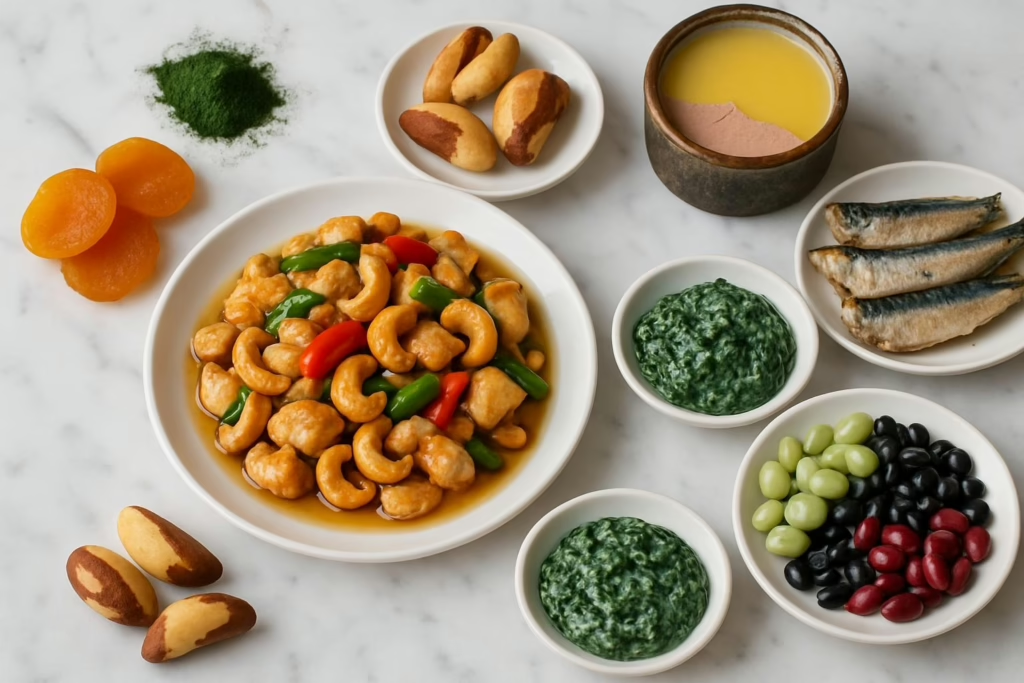
Why Minerals Are Important In Supporting Our Wellness
An efficient means to support our nutrient intake of minerals is possibly to add foods to our diet which are high or nutrient dense in various minerals. Nutrient density just means that per 100 grams or homogenous measurable unit of food there is a really condensed amount of nutrients compared to other foods. Foods dense or rich in a spectrum of minerals are more efficient because per meal you are maximizing your mineral intake.
Magnesium And Zinc
Minerals are so important in maintaining our wellness and are often overshadowed by vitamins or phytonutrients. Magnesium is one mineral which is absolutely essential in supporting our wellbeing. This mineral is involved in the process of energy production while magnesium is recognised as being essential in supporting healthy muscle contractions. One recent study determined that many elite athletes may develop a deficiency in magnesium. This most likely because of electrolytic losses through exercise and sweating.
Another important mineral is zinc. Zinc supports various enzymatic processes that drive core functions within the body. This mineral is one of the most abundant found within our brain. As an important antioxidant zinc prevents build ups in oxidative stress within our body. Around half of the population of the world are thought to be at risk of zinc deficiency.

Phosphorus And Calcium
Phosphorus is one of the most important minerals and is found in all of our cells. This mineral is a crucial part of the structure of our DNA while also supporting healthy energy production within the body. Phosphorus is structurally important alongside mineral calcium in supporting optimal bone and teeth health. Phosphorus is not easy to obtain from our diet but there are various foods which are rich in this mineral.
Calcium also functions as an important electrolyte in supporting healthy muscle contractions while having an important role in facilitating signals between and within cells. This allows our bodies to properly coordinate their functioning.
Iron And Manganese
Iron is very important in preventing fatigue within the body. This mineral ensures that sufficient oxygen travels throughout our bodies to support the optimal functioning of our muscles.
Manganese is a trace mineral which the body also needs to support optimal bone health. This mineral is also essential in promoting optimal fat and carbohydrate metabolism. Manganese also promotes superoxide dismutase production within the body. This is an antioxidant enzyme that helps to manage levels of oxidative stress.
There are many more minerals which the body requires. These are just examples of the more well known minerals and why minerals are so important in supporting our wellbeing.
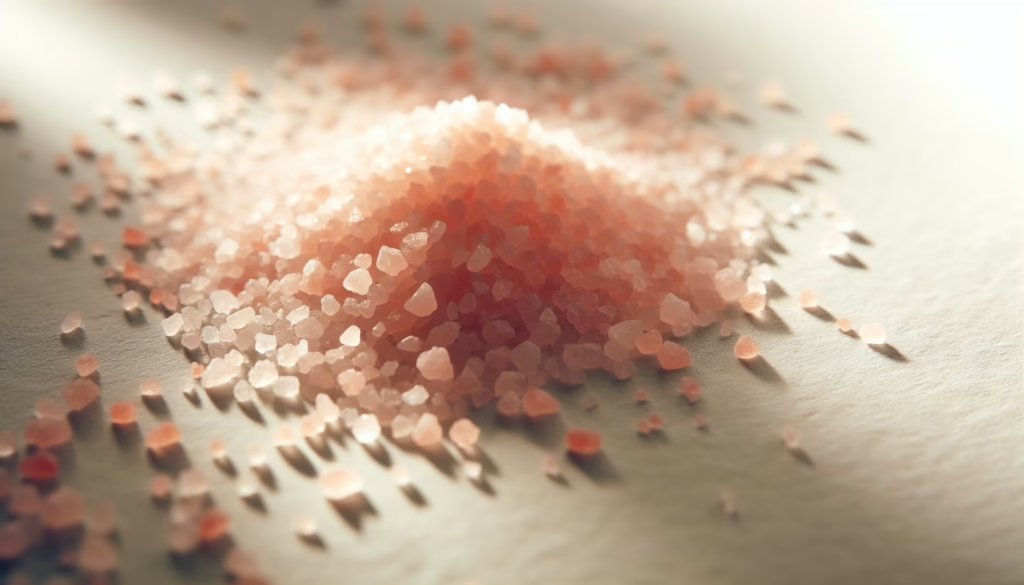
10 Foods High In Minerals
Below is a list containing 10 foods which are really high or nutrient dense in various minerals to consider adding into your diet. These are all foods which you should be able to find in any supermarket or grocery store and also integrate into your weekly diet.
Cashew Nuts
Cashew nuts are a very popular snacking food as they are nutrient dense in many important minerals and other nutrients. They are also very versatile and some meals can easily integrate cashew nuts. This includes some Thai curries and similar dishes.
100 grams of dry roasted cashew nuts is able to provide around 6mg of iron and also 273mg of magnesium. This is about 33% of an average RDA of iron and 65% of a magnesium RDA. The same amount of cashew nuts contains about 5.4mg of zinc or 50% of an average RDA and 2mg of copper too. This is about 200% of the average copper RDA.
In addition this nut is an excellent source of selenium and provides about 20µg of selenium per 100 grams making just under half of an average RDA. There is also about 530mg of phosphorus within cashew nuts per 100 grams which is also just under half of an average RDA.
Altogether this is a seriously nutrient dense nut which you could easily add to your diet to support your nutrient requirements.
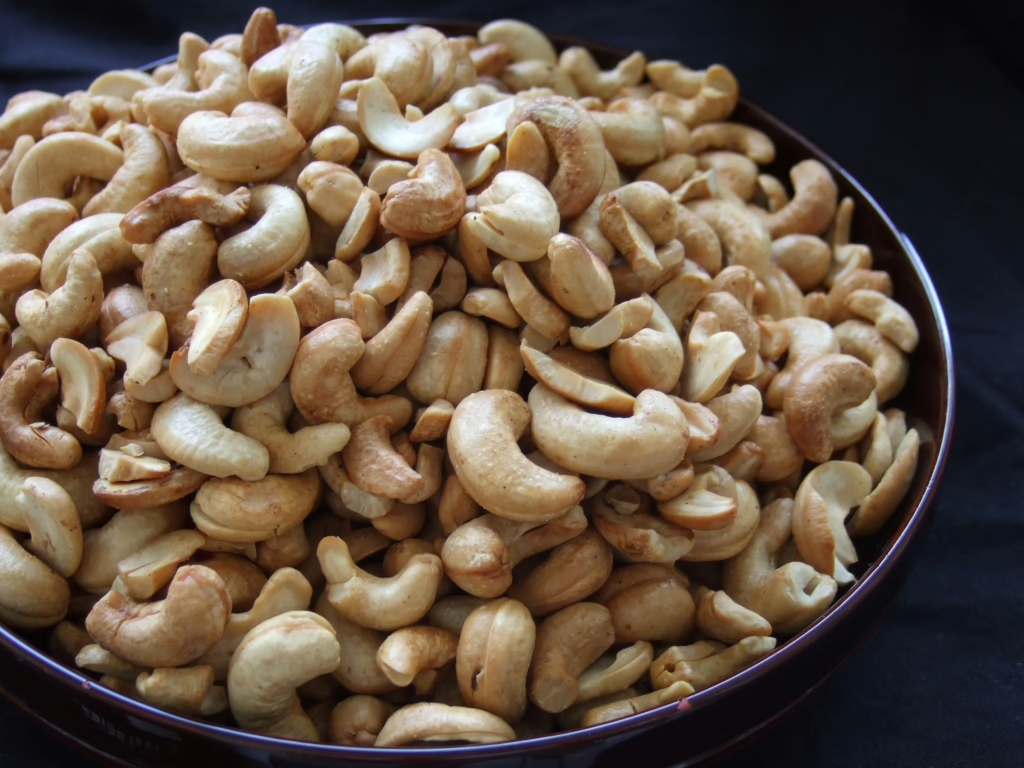
Brazil Nuts
Brazil nuts are native to the amazon and are rich in various minerals which our bodies need. One of these is selenium. We require healthy levels of selenium to promote optimal amounts of the antioxidant enzyme glutathione peroxidase which is part of the antioxidant glutathione complex. Selenium also encourages optimal thyroid gland health.
Brazil nuts contain 280µg of selenium per 100 grams which is about 500% of an average RDA. Brazil nuts are also excellent sources of zinc containing up to 4mg of this mineral per 100 grams. This makes about 34% of an average RDA. Brazil nuts also contain an astounding 350mg of magnesium per 100 grams which is about 80% of our RDA. In 100 grams of Brazil nuts you could also find about 700mg of phosphorus which is nearly 60% of an average phosphorus RDA. In addition Brazil nuts contain about 1.7mg of copper per 100 grams which is nearly 200% of an average RDA.
Spirulina
Spirulina powder is one of the most nutrient dense foods available to us. If you are very active you could easily add a small spoon of spirulina powder into your regular protein shake. This may give you an added mineral boost. Spirulina is very exotic as well coming in various colours. There is a blue spirulina powder in addition to the regular green spirulina powder.
There is about 30mg of iron and 6.1mg of copper in 100 grams of green spirulina powder. This makes nearly 600% of the average copper RDA and 150% of the average iron RDA. There is also about 2mg of manganese in 100 grams of spirulina which is nearly the full average RDA of this important mineral. 100 grams of spirulina powder also contains about 2mg of zinc and 195mg o magnesium. This is 20% of an average zinc RDA and nearly half of an average magnesium RDA.
Taken together spirulina is a really nutrient dense food which could possibly support your mineral requirements. This is especially the case if you are more active than average.
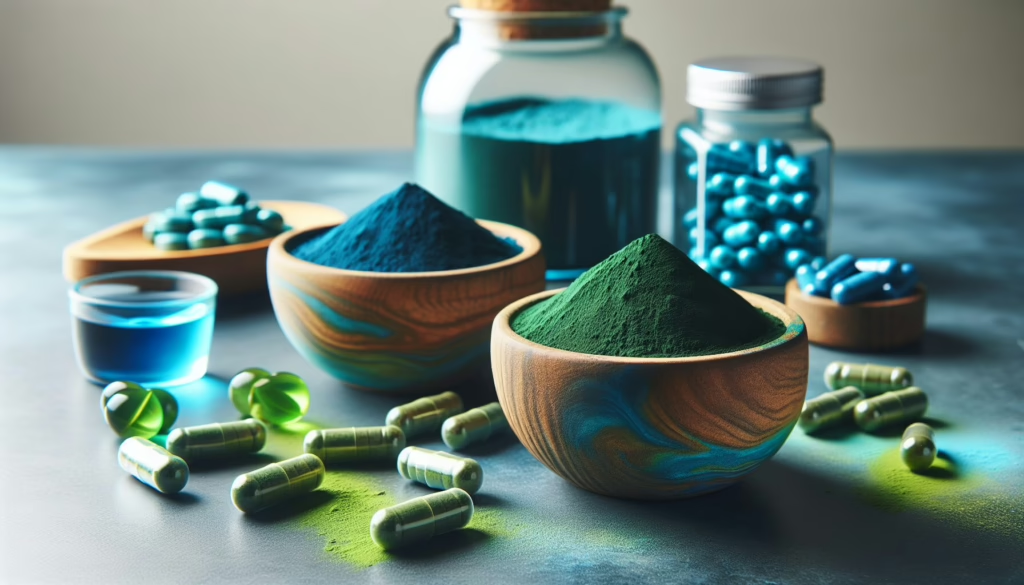
Spinach
Spinach is an extremely nutrient dense food in some important minerals which vegans or vegetarians really struggle to consume a lot of. This food is very easy to cook with and integrate into your weekly diet.
Spinach an excellent source of naturally bioavailable mineral iron. 100 grams of cooked spinach contains about 3.6mg of iron and this is about 20% of an average RDA. Other minerals you find in high amounts in spinach include manganese and copper. In 100 grams of spinach there is about 1mg of manganese which is about 40% of an average RDA. There is roughly 0.17mg of copper per 100 grams of spinach which is about 20% of an average RDA.
Spinach makes a nice addition to any dish to support extra mineral needs and is very easy to cook as well.
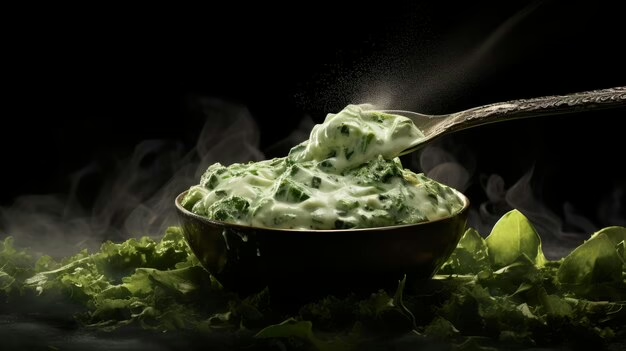
Sardines
Sardines are a delicious seafood which is usually grilled and is very popular in the Mediterranean. In terms of maximising nutrient intake you could look to eat sardines with bones. This ensures that you are eating a nutrient dense source of phosphorus in addition to a wealth of other minerals.
100 grams of cooked sardines contains about 490mg of phosphorus which is about 40% of an average phosphorus RDA. The same amount of sardines also contains about 380mg of calcium which is about 30% of the calcium RDA. 100 grams of cooked sardines also has about 50µg of selenium and this is about 100% of an average RDA. Sardines also contain a rich iron content and you could obtain about 3mg of iron from 100 grams of sardines. This is about 20% of an average RDA.
Altogether sardines offer a highly nutrient dense food in various minerals which could support your mineral needs.
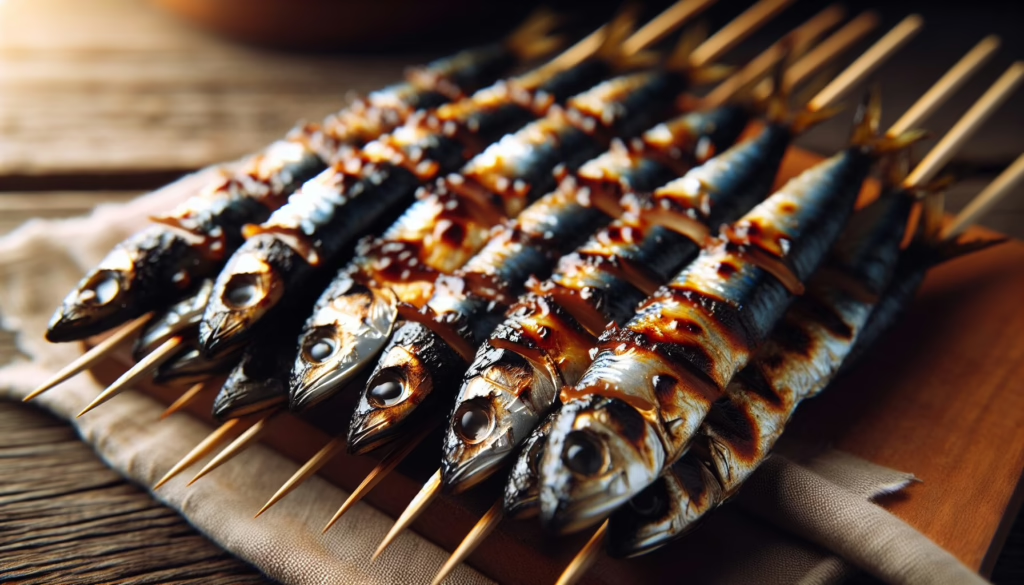
Kidney Beans
Beans are rich sources of minerals and other nutrients. Kidney beans in particular are nutrient dense in various minerals.
In 100 grams of cooked kidney beans there is 0.22mg of copper and 0.43mg of manganese. These are two of the most nutrient dense minerals which could be found within kidney beans and represents about 20% of an average copper RDA and 20% of an average manganese RDA. In 100 grams of kidney beans you could also find 2.2mg of iron and 405mg of potassium. This is about 12% of your iron RDA and 10% of your potassium RDA.
Black Beans
Black beans are another mineral dense bean which is easy to integrate into your diet. A portion of black beans go well with spicy or rich based dishes.
In 100 grams of black beans there is about 2mg of iron and 70mg of magnesium. This is about 11% of an average iron RDA and 16% of a magnesium RDA. The same amount of black beans may also provide around 1.1mg of zinc which is about 10% of our RDA.
There is also about 0.2mg of copper and 0.44mg of manganese in 100 grams of black beans. This provides us with 20% of the average RDAs of these minerals. There is also additionally about 350mg of potassium within 100 grams of black beans which is about 8% of an average RDA.
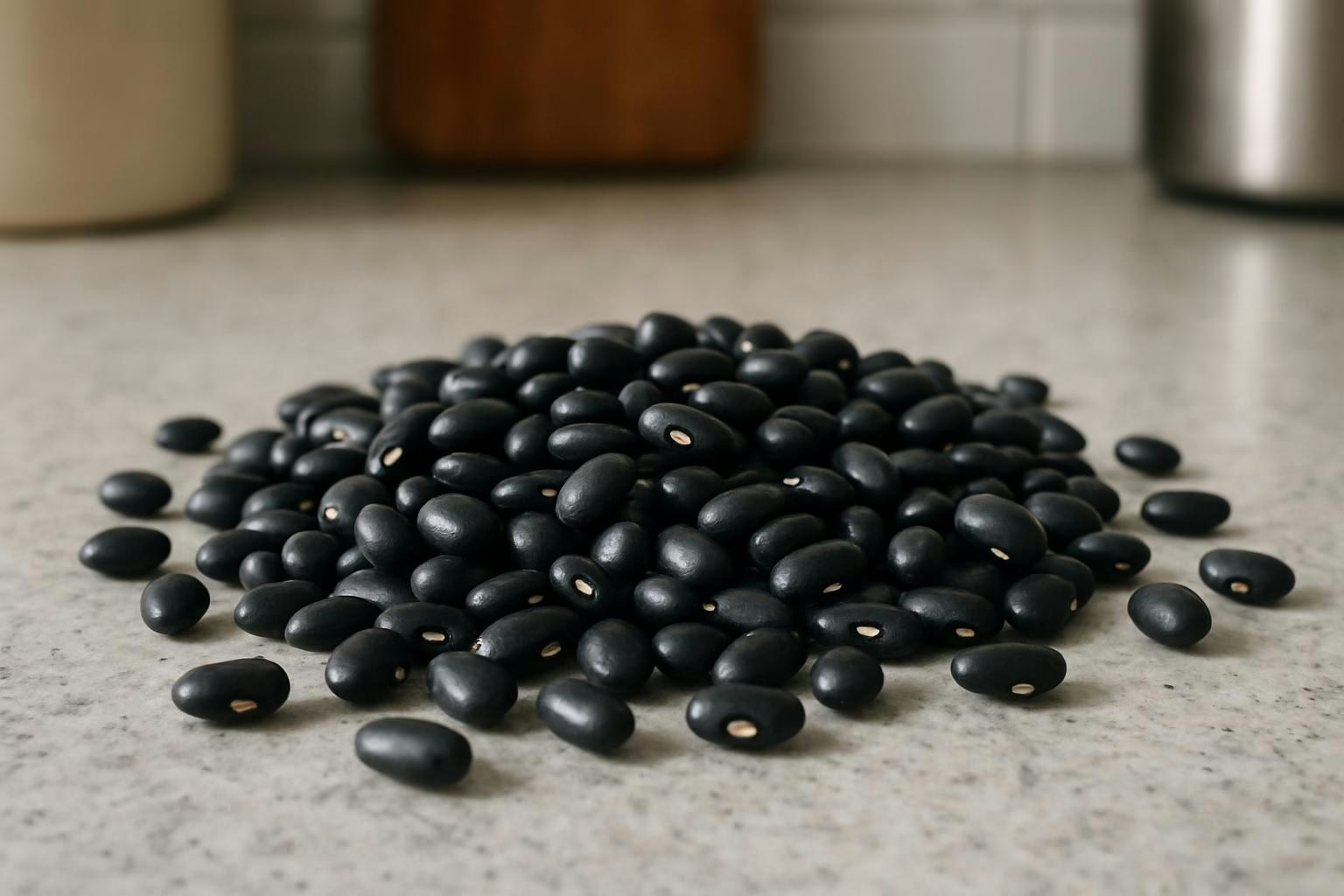
Lima Beans
Lima beans provide an excellent source of various nutrients. They are easily used to make pasta dishes and also spicy Mexican cuisines.
Lima beans provide about 0.24mg of copper and 0.52mg of manganese per 100 grams. This is about 20% of an average RDA of both minerals. Lima beans also provide about 43mg of magnesium or 10% of an average RDA per 100 grams. You may also obtain about 2.4mg of iron or 13% of an average RDA and 508mg of potassium or 10% of an average RDA per 100 grams.
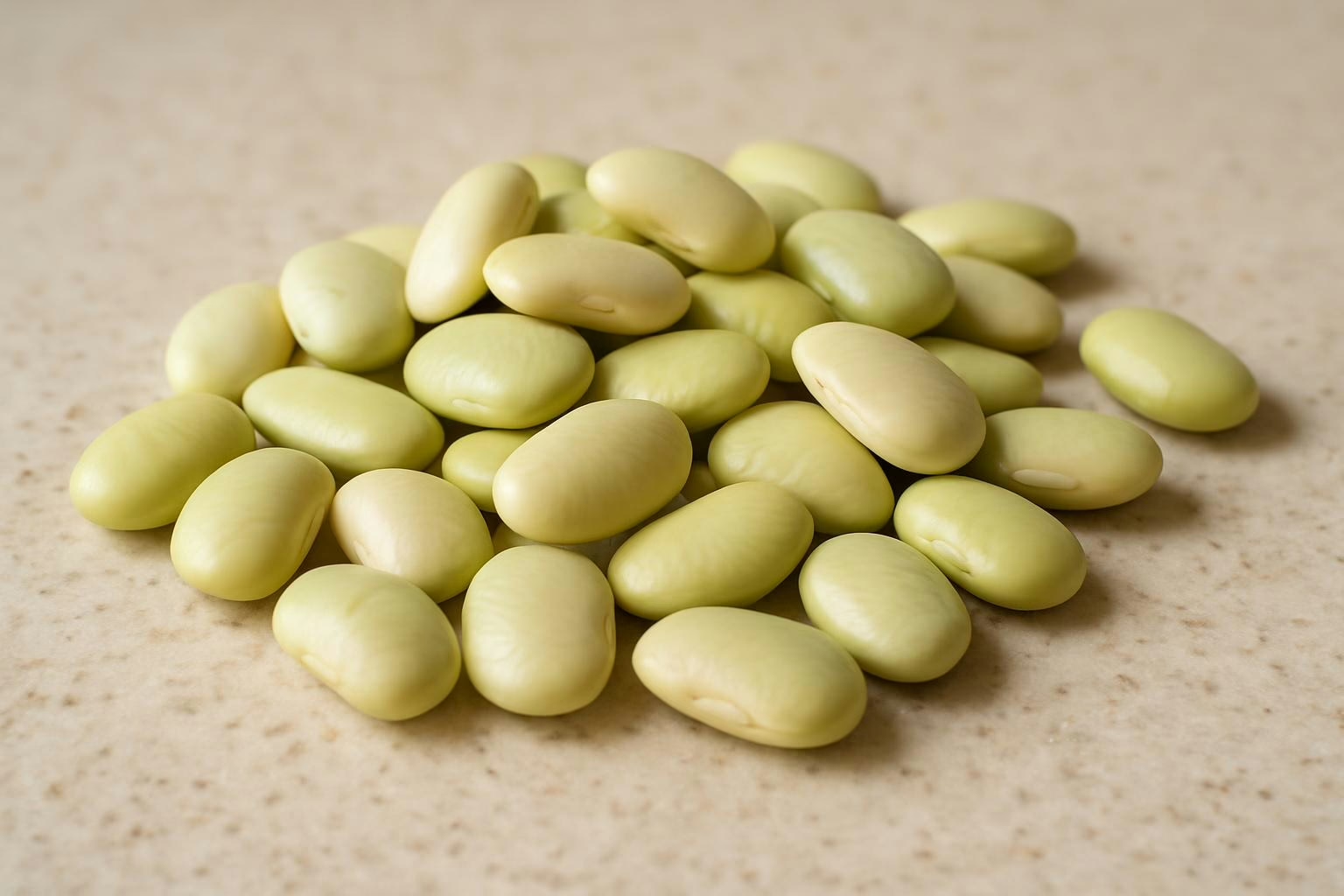
Liver
Animal liver meat is very mineral dense but not as popular as a cut of meat in modern society. Liver can be produced into a more palatable liver parfait which contains very significant amounts of liver.
100 grams of a standard chicken liver parfait contains about 46µg of selenium. This is about 90% of an average RDA. The same amount of chicken liver parfait contains 0.18mg of copper or 20% of an average RDA and 9.2mg iron or about 50% of an average RDA.
In addition 100 grams of chicken liver parfait has 2.1mg of zinc or about 20% of an average RDA. The same amount of chicken liver parfait also contains 14% of our phosphorus RDA or 175mg of phosphorus.
Liver is a really well known mineral dense food which could further enrich your diet with essential minerals.

Apricots
Apricots are a sweet fruit and also very nutrient dense in some important minerals.
100 grams of dried apricots contains 0.34 grams of copper or about 30% of an average RDA and 1162mg of potassium or 25% of an average RDA per 100 grams. There is also about 0.24mg of manganese and 2.7mg of iron per 100 grams of dried apricots. This is about 10% of an average manganese RDA and 15% of an iron RDA. Dried apricots are nutrient dense in these minerals and so could support your required intake of minerals.
Overall some of the most mineral rich or dense foods easily available to us include spirulina power and cashew nuts. These foods could provide extra support of your mineral needs especially if you have an active lifestyle.
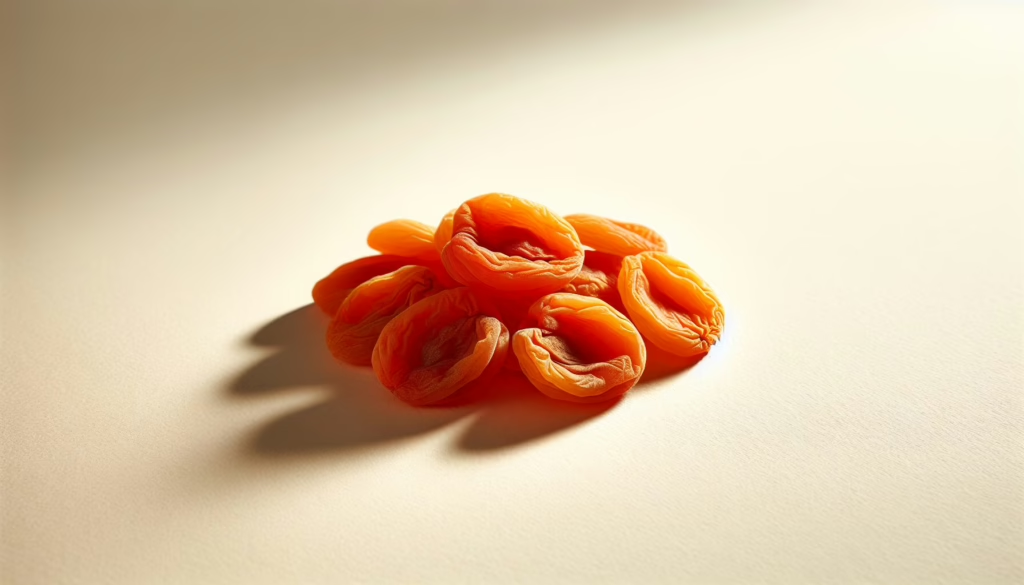
Summary
Consuming foods rich in minerals is important in ensuring our wellbeing is well supported. We use minerals everyday to support vital functions such as muscle movements and energy production.
Minerals are often overshadowed by vitamins but are just as important in supporting our wellbeing. Without phosphorus we would not be able to produce DNA which is essential to support life.
Other important minerals include zinc. This is an antioxidant mineral which manages levels of oxidative stress within the body. Magnesium is essential in supporting proper energy production while manganese also supports the optimal functioning of our metabolism. Iron is also an important mineral which is preventative of fatigue.
People who are very active may require more minerals than those who are less active. These may all be reasons why you may want to support your diet with extra minerals.
Some foods which are really high or rich in minerals include cashew nuts and spirulina. These are two of the most mineral rich foods listed here. Other mineral rich foods include liver parfait and Brazil nuts which are very nutrient dense too.
Beans such as black beans are also nutrient dense sources of minerals. Additionally you could look to add more dried apricots or also sardines into your weekly diet to support your intake of minerals.
Overall there are various nutrient rich foods as listed here which could support a healthy mineral intake.
You can find more interesting articles below.





